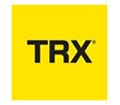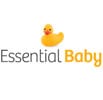When you are thinking about hiring a personal trainer, it is normal to wonder: Is it worth the money? Will it work for you? What if you do not have time or you have tried other programs or gyms before, and nothing delivered lasting results”?
Here is the truth about personal training based on 15+ years of experience, real client results, deep industry knowledge, and current research.
In this guide –
1.What research says about Personal Training
2.Is Personal Training Expensive?
3.I Do Not Have a Lot of Time — Will It Fit Into My Schedule?
4.Is Personal Training Worth the Effort?
6.Do I Need to Follow a Strict Diet?
7.Do I Need to Be Fit Before I Start?
8.Is Personal Training Only for Weight Loss?
9.What If I Have Injuries or Health Conditions?
10.I Have Tried Gyms and Programs Before — How Is This Different?
BONUS – 6 Things Your Personal Trainer Wishes You Knew
1.What Research Says About Personal Training
30–70% more success in reaching fitness goals when working with a personal trainer versus training alone. — Australian Institute of Fitness, 2021
Stronger results, faster progress. Supervised training leads to greater gains in strength, mobility, and cardiovascular health compared to solo exercise. — Journal of Sports Science & Medicine, 2014
Coaching and accountability significantly improve habit formation and long-term health behaviours. — Harvard Business Review, 2019
The bottom line: Personal training delivers results — backed by science, reinforced by accountability, and proven by real people just like you.
2.Is Personal Training Expensive?
While there is an upfront cost, the return goes far beyond the financial.
It is an investment in a healthier body, more energy, greater confidence and a life with more freedom and ability.
What price can you put on moving pain-free, feeling stronger, and having the energy to live fully?
When you compare personal training to other common health-related costs, its value becomes clearer:
- The real cost of ongoing health issues linked to inactivity
- Unused gym memberships and equipment
- Time and money spent trying to “figure it out on your own” — often without results
- Reliance on costly convenience food and drinks driven by fatigue and stress
- Rising medical costs/medications from chronic lifestyle conditions (World Health Organization, 2020)
- Short-term “fixes” like generic programs or viral wellness trends
- Repeated physio, osteo, or chiro visits for preventable pain or injuries
With guidance from an experienced coach, you are not just paying for workouts or advice.
You are investing in prevention, performance, and long-term health freedom and avoiding the compounding costs of “doing it alone.”
“For every $1 spent on consistent exercise, research shows an estimated $3–$5 saved in future healthcare, medication, and injury costs.”
— Journal of Preventive Medicine
When you consider the payoff in strength, peace of mind, and quality of life — personal training becomes one of the most cost-effective investments you can make.
3.I Do Not Have a Lot of Time — Will It Fit Into My Schedule?
Absolutely, that is one of the key reasons that Personal Training is so popular and effective.
Most people want to stay active, but struggle because life is so busy. Personal Training helps you prioritise your health by locking in a time that works for you.
A personal trainer also helps you:
- Maximise your time with focused, efficient workouts tailored to your goals
- Work to a proven plan — no wasted effort, no wondering what to do next
- Avoid the noise — your trainer knows what works for you and what is just marketing hype
- Stay accountable to the appointments you have committed to, even when life gets busy helping you stay consistent and see real results.
Great training is not about doing more, it is about working smarter.
4.Is Personal Training Worth the Effort?
Yes — because the rewards truly outweigh the work.
Adopting new exercise habits and lifestyle routines does require effort and commitment.
And with the support of a coach, turns effort into success by helping you stay consistent, avoid overwhelm, and build habits that last.
You will be rewarded with some amazing benefits like:
- Sharper mental clarity and improved mood
- Better sleep and more balanced energy every day
- Stronger bones, joints, and muscles that support lifelong movement
- Reduced risk of chronic lifestyle diseases
- Greater resilience during stressful times and life changes
Research shows: as little as three hours of movement per week can lead to:
- 30% reduction in depression and anxiety (Harvard Health)
- 23% reduced risk of death from any cause (British Journal of Sports Medicine)
- 2x increase in energy and productivity (University of Georgia)
Regular exercise is one of the most effective tools we have for long-term health.
When combined with expert coaching, the results can be even more powerful.
5.Will It Work For Me?
Yes — but it is not a magic pill.
Personal training works when you do and when the plan is built for you, not for the masses.
That means it is NOT – a generic program, a one-size-fits-all template and random workouts pulled from the internet.
Instead, your specific plan needs to take into account –
–Age — because physical needs, responses and recovery change over time. As an example, as we age, we benefit from more stability, balance, and functional strength work while younger bodies often respond well to varied, dynamic and integrated movement.
–Gender — men and women are different bio-mechanically and hormonally and as a result have different considerations which include different types of training and recovery.
Explore our full post on training differences for women – https://www.corehealthcoaching.com.au/womens-fitness-training-different-mens/
–Personal goals — whether it is fat loss, strength gain, rehabilitation/pain reduction, longevity, sports performance, or all the above. Your “why” becomes the driving force behind the “how” of your program.
-Health history & medications — certain conditions or treatments impact how you should train. As an example: individuals with high blood pressure should avoid exercises like heavy overhead presses, which may increase risk.
–Injury history — helps guide possible rehabilitation work and targeted support for stabilising muscles to prevent future injury or pain
–Training age — how long you have been training influences your neurological adaptation and muscle development. Understanding this helps ensure that the type and level of challenge and progression suit your current capabilities.
–Current fitness level — helps ensure your program starts at the right level, challenges you safely, and progresses effectively — without overtraining or underloading.
–Posture & movement patterns —repeated habits can create muscle imbalances that lead to pain or injury. Your program should strengthen what is weak and release and/or stretch what is tight or overused.
–Lifestyle demands — your energy, stress, schedule, and recovery all influence what is realistic. Training succeeds when it supports your life, not competes with it.
–Mindset & motivation — because how you think and what drives you, impacts the way you train. Good coaching identifies what motivates you, what has (or has not) worked before, and how you respond to support so your program works for both your body and your brain.
At Core Health Coaching, we have worked with hundreds of clients from 20 to 80 years old, from “never exercised” to World Champions!
See why personal training has worked for 100+ of our clients with their 5-star reviews — READ THEIR STORIES HERE
6.Do I Need to Follow a Strict Diet?
No — personal training is not about strict diets.
It is about learning how to make better food choices that support your goals without restriction, confusion, guilt, or a broken relationship with food.
Food is deeply individual, which is why we do NOT offer strict meal plans or eliminate whole food groups for fast results.
Instead, we focus on supporting you with nutritional education and realistic habits that support your lifestyle:
1.Food quality, not just calories: We guide you in understanding the role of real foods, nutrient-dense foods and balanced nutrition instead of relying on restrictive dieting.
2.Nutrition aligned with goals: You will learn how your food choices can affect fat loss, energy, mood, recovery, strength, performance and your long-term health.
3.Real-life flexibility: Eating out? Feeding a family? Travelling? We help you develop habits to make healthy choices in everyday situations.
4.Sustainable behaviour change: Diet overhauls are rarely successful instead; we focus on building long term change with “tiny habits”. (See our article on lasting health change)
5.Respect for preferences: We support diverse cultural backgrounds, ethical choices (e.g. vegan, vegetarian), and food sensitivities to help you make choices that work for you — without judgement.
Food absolutely impacts how you look, feel, and perform and a personal trainer’s role is to support you with education, tools, and accountability, not provide outdated diets or one-size-fits-all meal plans.
7.Do I Need To Be Fit Before I Start?
No, you just need to start.
You do not wait until you can already play a musical instrument before taking music lessons.
You start as a beginner and improve with the help of someone who knows how to guide you.
One of the biggest benefits of working with a personal trainer is that you get to start safely without worrying about injury, doing the wrong exercises, or trying to guess what is right for your body.
The most common injuries occur when people start (or restart) exercise without proper guidance or progressed intensity.
- A study in the Journal of Sports Medicine (2018) found that beginners are up to 4x more likely to experience injury when training unsupervised vs. with a qualified professional.
- Personal training dramatically reduces this risk through proper form, controlled progression, and tailoring to your abilities.
The truth is, the longer you wait to “get fit first,” the harder it feels to begin.
And that is exactly why we created the Action Breakthrough Series to help you go from stuck or unsure to starting safely and confidently.
8.Is Personal Training Only for Weight Loss?
Not at all.
A lot of clients come to personal trainers for weight loss but this is only a small piece of what is offered.
Personal training is just as much about:
- Reducing pain and improving posture
- Building strength, mobility, and confidence
- Enhancing sports performance or returning to activity after injury
- Reducing stress and increasing energy
- Supporting bone, heart, and metabolic health
- Maintaining function and independence as you age
In other words, training is not just about looking different, it is also about living better.
Research backs this up:
A 2019 study published in the Journal of Aging and Physical Activity found that resistance training supports: stronger bones, better metabolic health, functional movement, reduced fall risk in older adults
So really, personal training is about living better, longer, stronger, and with more mobility and energy not just change how you look!
9.What If I Have Injuries or Health Conditions?
This is one of the main reasons people choose personal training to exercise safely while managing pain, injury, or ongoing health conditions.
A qualified trainer can help you move confidently and correctly, even if you are dealing with past injuries, chronic pain, mobility limitations and health conditions like arthritis, hypertension, diabetes, osteoporosis, and more
Here is how we support you:
- Modify exercise selection to protect and strengthen affected areas while reducing the risk of future aggravation
- Improve strength, mobility, and stability to support long-term function, not just short-term relief
- Work alongside other healthcare providers, physios, osteopaths, massage therapist, or other specialists to ensure continuity of care
- Progress at your pace without skipping the foundational work your body needs
With the right exercise progression and support, training can help you manage pain, rebuild strength, regain confidence, and reduce the risk of future injury.
10. I Have Tried Gyms and Programs Before — How Is This Different?
If you have ever signed up to a gym or program and felt like it just did not “stick,” you are not alone.
Here is what makes personal training — and especially coaching with us — different:
1.It is Personalised, Not Packaged
Your program is tailored to your body, your goals, your experience, your health and exercise history, and your lifestyle.
2.It is Support & Coaching — Not Just Access
You are not left with a swipe card and a “good luck.”
You have guidance, accountability, and someone in your corner who knows how to get you from where you are to where you want to be.
3.It is Whole-Person Coaching
Real results do not come from workouts alone. They come from a coaching approach that includes:
- Exercise
- Nutrition habits
- Mindset, beliefs and behaviour
- Recovery and stress
- Lifestyle choices
Your body works as a connected system — your training should too.
4.It Builds Long-Term Change — Not Just Short-Term Results
Instead of quick challenges or “transformation sprints,” we focus on building skills,
awareness, and strength you can carry for years not just weeks.
5.It Grows With You
As your goals, confidence, and ability change, your program will change and progress with you.
This is different because:
- Your plan is specific to you, not a template
- You get one‑on‑one guidance, not generic advice
- We adapt your program based on feedback and real progress
BONUS: 6 Things Your Personal Trainer Wishes You Knew
- You do not need to be perfect to make progress.
- Consistency matters more than intensity.
- You are capable of more than you think.
- Progress looks different on everyone—stop comparing.
- There is no “right time” to begin — waiting only delays the results you deserve.
- The hardest part is often making the decision to start (and taking the first action).
If you need help to take the first step, visit our Action Breakthrough Series designed to help you overcome the fear, doubt and indecision that stops most people from beginning and getting the results they want.
Summary
Personal training is not just about workouts or weight loss — it is about support, smart progression, and building change that lasts.
Research consistently shows that working with a coach improves results, lowers injury risk, and dramatically boosts consistency and accountability compared to going it alone.
Whether your aim is to feel stronger, lose weight, move better, feel better or reduce stress personal training adapts to your needs — not the other way around. It is an investment in your long-term health, not just a short-term plan.
The bottom line: Personal training works — not because it is easy, but because it is personal, structured, and accountable.
Ready To Take The Next Step?
Whether you are curious, cautious, or committed, taking the first step is what creates real change.
If this article has helped you understand personal training better and you are wondering what it might look like for you, then let us talk.
Here is what you can do next:
1.Book a free consultation call — no pressure, just a genuine chat about your goals and your plan moving forward.
2.Ask your questions — uncertainties and hesitations are normal, and we are here to help you find clarity.
3.See if we are the right fit — the right coach-client connection matters just as much as the program.
Whether you are ready now, or simply exploring your options, one conversation could be the catalyst for real change.
Click here to book your FREE CONSULT and get started, or discover what is possible through REAL CLIENT RESULTS.
Cameron Corish has been caring and achieving results for the local Wishart, Mansfield and Mt Gravatt community for over 15 years. He takes a multi-disciplined and holistic approach to health and fitness addressing the physical, mental and emotional aspects of one’s health.
Ready to feel and look your best? Book a time for a FREE chat and see how we can make a difference in your life.
If you are not ready yet, come and join our community of health, fitness and wellness enthusiasts with our latest updates. When subscribing to our newsletter you will receive 3 welcome gifts!!
Research References
-Australian Institute of Fitness (2021). The Impact of Personal Trainers on Exercise Adherence and Goal Achievement.
-Ratamess, N.A. et al. (2008). The Effects of Supervised Resistance Training on Physical Fitness in Adults. Journal of Sports Science & Medicine.
-Harvard Business Review (2019). Accountability Improves Health Behaviors: The Power of Coaching and Support Systems.
-American Council on Exercise (ACE) (2022). The Psychological Benefits of Exercise and the Role of Personal Trainers.
-World Health Organization (2020). Physical Activity and Health: A Global Overview of Evidence-Based Benefits.
Frequently Asked Questions
Does personal training really work?
Yes — when it’s personalised and accountability is in place, research shows people reach fitness goals up to 70% faster than training alone.
Is personal training worth the money?
It’s often more cost-effective than gym memberships, physio visits, or unused programs due to long-term injury prevention and health improvements.
Do I need to be fit before I start?
Not at all — personal training is designed to help you safely begin, even if you’re recovering from injury or just getting started.
Will it work if I’ve failed before?
Absolutely — most people don’t fail due to lack of effort, but due to lack of guidance and personalisation.














